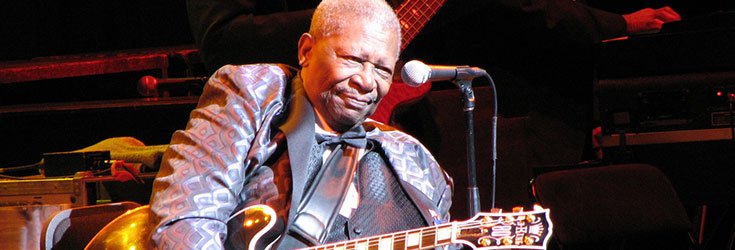Sad: B.B. King Dies of Preventable Type 2 Diabetes

Whether it’s a legendary music icon or the average American citizen, the highly processed food supply can take all of us down with equal strength. As you’ve probably heard by now, American Hall of Fame blues singer B.B. King has died due to complications arising from his Type 2 diabetes: a condition that is not only entirely preventable and generated through a diet of the processed junk that has overtaken the food supply, but also one that has been controlled through the proper diet protocols over and over again.
Report: Chance of Obesity, Diabetes Rises When McDonald’s is Nearby
These are protocols that, unfortunately, many ‘old paradigm’ medical establishment doctors have failed to embrace. But as we’ve seen from the powerful research and even mainstream articles on the subject of Type 2 diabetes, a rigorous nutrition regimen that includes calorie restriction and certain forms of exercise can prove invaluable in the fight for reversal.
As Sayer Ji, scientific researcher for the GreenMedInfo database of over 100,000 PubMed-based studies, writes:
“Caloric restriction (especially carbohydrates) becomes of vital importance in forestalling the development of type 2 diabetes. Exercise is essential in helping the body use up stored energy, converting calories consumed into calories burned. Exercise has the opposite effect of over-eating, increasing the number of insulin receptors in muscle and increasing the sensitivity of the body to insulin thus releasing the pancreas of the burden of constant insulin production. Exercise also results in the release of appetite suppressing hormones and neurotransmitters which help to forestall over-eating.”
We’re talking about truths that we have not only seen time and time again reiterated by experts, but also practiced by those suffering from Type 2 diabetes. Specifically, the advice reminds me of a 2013 piece out of The Guardian which includes individuals who used very similar strategies to escape their Type 2 diabetes medication and restore insulin balance to the body.
The author of the article, Richard Doughty, lost several pounds in just a few days and received doctor confirmation that his diabetes had ‘resolved itself.’
Doughty explains:
“On the first full day, I weighed 9st 7lb with a healthy body mass index of 21. After reaching my target of 8st 12lb, I would be able to build myself up through exercise, as larger muscles use more energy, soaking up excess glucose before it is converted and stored as fat.
I waited two months to be sure, but on 24 September last year it was confirmed. Following a fasting glucose test at my surgery, my doctor declared: “The diabetes has resolved itself.” My glucose level was 5.1mmol/L, well below the diabetes mark of 6.”
And let me tell you, this is not a ‘special’ case. Countless individuals have taken their health into their own hands and nutritionally removed the need for their diabetes medication purely through decisions made over what they’re going to be having for dinner and to what level they’ll be active.
Unfortunately, I am not so certain that the medical doctors advising B.B. King offered such advice. Instead, it is more likely the case that these ‘old paradigm’ doctors simply placed B.B. on a host of pharmaceutical drugs that were intended to ‘regulate’ his insulin response, which come with a host of side effects (perhaps including the medical issues he experienced during his death). Remember, the average drug label contains over 70 side effects, but that number can skyrocket to above and beyond 500 in the case of some pharmaceutical solutions.
It’s time to advance towards the next level of nutritional and medical integration in understanding that what we’re putting into our bodies can determine the length and the experience of our lifetime. I am sad to hear that B.B. King was likely not able to reclaim his health through utilizing the groundbreaking research on calorie restriction, gut flora balancing, the insulin regulation effects of substances like oregano oil, and much more.
